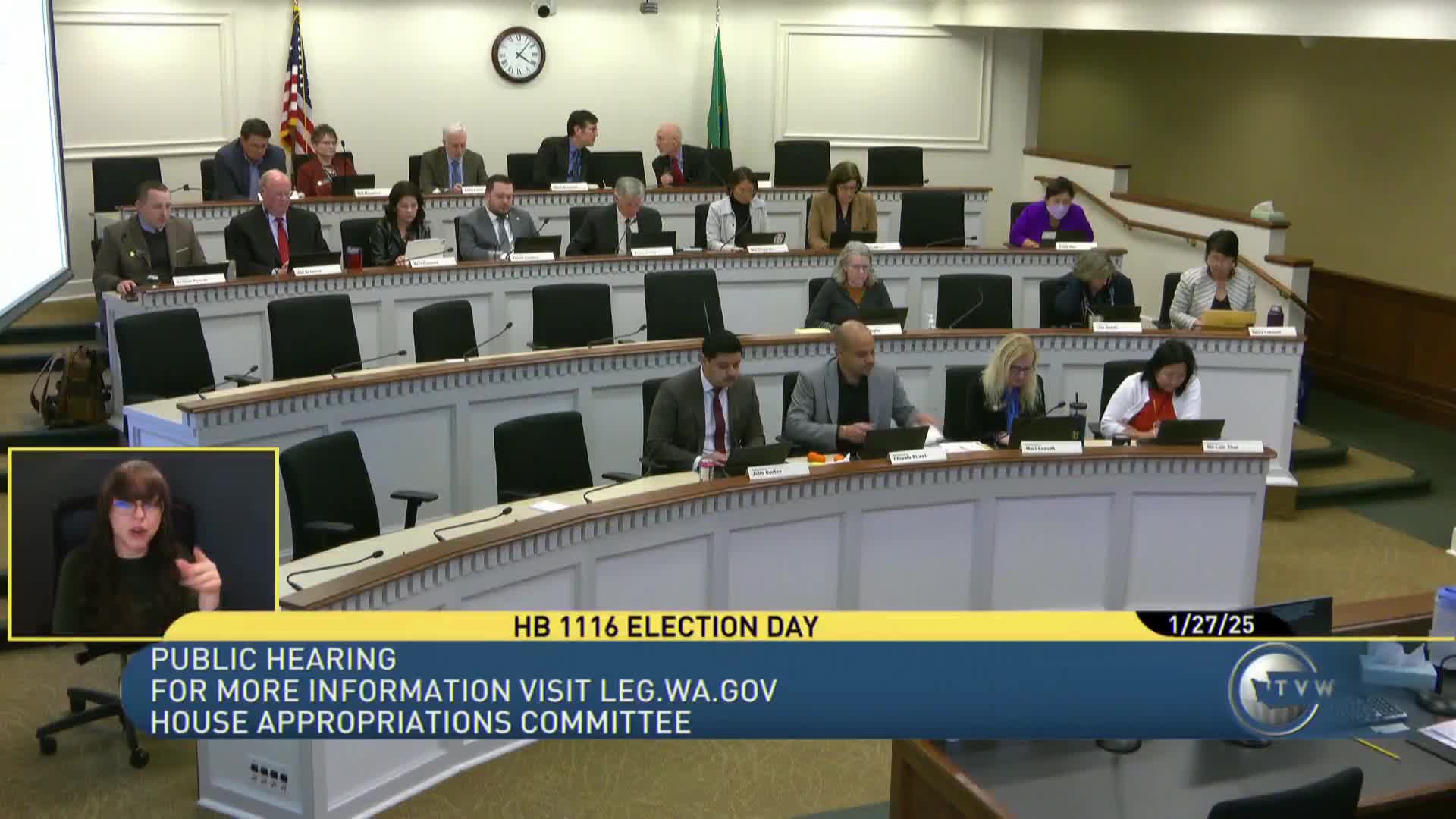Committee hears wide-ranging testimony on bill to cap PEB/SEBB hospital payments and redirect savings to primary care
Get AI-powered insights, summaries, and transcripts
Subscribe
Summary
House Bill 1123 would require hospitals contracting with the Public Employees Benefits (PEB) and School Employees Benefits (SEBB) systems to accept state-set payment limits tied to Medicare rates and to provide cost and quality information to the Health Care Authority.
House Bill 1123, sponsored at the Appropriations Committee request of the Health Care Authority, would require licensed hospitals that participate in the state employee (PEB) and school employee (SEBB) benefit programs to contract with those systems on receipt of a good-faith offer and limit reimbursement for hospital services to specified multiples of Medicare rates beginning Jan. 1, 2027.
The bill sets initial upper limits at 200% of Medicare for most hospitals and 350% for children’s hospitals, stepping down to 190% and 300% respectively on Jan. 1, 2029. Rural critical-access and sole-community hospitals would be paid at a floor of 101% of allowable costs. Primary care and non–facility-based behavioral health services would have a reimbursement floor of 150% of Medicare; the bill also requires providers to supply cost and quality information to the Health Care Authority and forbids contractual restrictions on that reporting.
Supporters told the committee they expect HB 1123 to lower premiums and out-of-pocket costs for state and school employees and to free state funds for investment in primary care and behavioral health. Evan Klein, special assistant for legislative and policy affairs at the Health Care Authority, summarized the administration’s goals: “The first is leveraging reference pricing to braid lower premiums and out of pocket costs to state and school employees… The second goal is to redistribute health care spending through payment floors… The third is to ensure employees aren’t caught in the middle of disruptive disputes around hospitals… And the fourth is to control the state’s expenditures.”
Nicole Gomez, representing the Washington Federation of State Employees, said the policy would “let the air out” of rising health costs and expected premium reductions for workers. Pam McEwen, speaking for the Purchaser Business Group on Health, cited Oregon’s experience and said similar policies saved that state “$100,000,000 over two years” and found “no evidence of cost shifting.” Patient advocates and nonprofit groups also urged support, arguing the measure would expand access to primary care and mental-health services and reduce patient costs.
Hospital and provider representatives urged the committee to reject or substantially amend the proposal. Ashley Thoreau, vice president of peer contracting and high-performing network officer for Providence Swedish, warned HB 1123 could cause severe operating losses, estimating a $40 million impact on Providence Swedish once fully implemented in 2029 and pressing the committee for alternative approaches. Shailene Whitaker of the Washington State Hospital Association said hospitals statewide had a negative operating margin through September 2024 and that reduced payments would force either higher commercial rates or cuts to services. Matt Fordge, CEO of Pullman Regional Hospital, said his critical-access facility could face a $3 million annual loss and that mandatory contracting with a low floor “would become the default payment rate” and jeopardize rural access.
Health-care plan and physician groups expressed concern about cost-shifting to the commercial market and the bill’s reach to independent physician groups that bill through hospitals. Jennifer Ziegler of the Association of Washington Health Care Plans said she and other stakeholders were drafting alternative language to address potential market shifts.
Committee staff presented fiscal estimates. The Health Care Authority’s fiscal note projects reductions in PEB/SEBB expenditures beginning in fiscal 2027; staff briefings indicated program savings may be substantial in later biennia but that administrative set-up costs would be required. Administration witnesses and several proponents urged that the state’s ability to reinvest savings into primary care and behavioral health be part of the bill’s calculation.
The committee held an extended public hearing with supporters and opponents; no final action or vote on HB 1123 was taken in the hearing recorded in the transcript.
